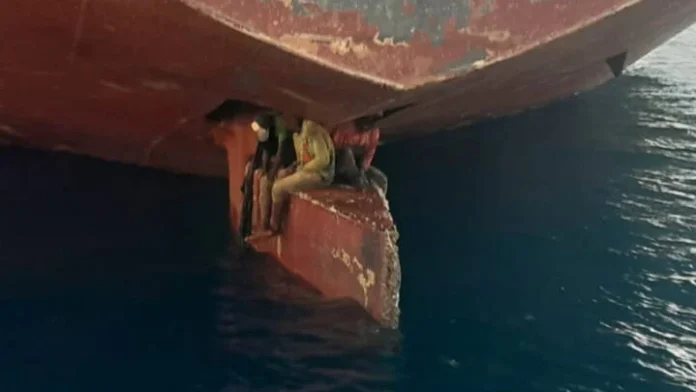Stowaway incidents on Nigerian waterways have decreased by 40% over the past year, thanks to increased collaboration between the Nigerian Navy and the Nigerian Immigration Service (NIS). Commodore Paul Nimmyel, Commander of the Nigerian Navy Ship (NNS) Beecroft, revealed the significant drop during a high-level maritime security simulation exercise in Lagos. The exercise marked the end of a three-day regional workshop focused on marine border security and counter-terrorism.
Nimmyel attributed the decline to stricter enforcement and proactive community outreach programs informing citizens about the risks of illegal migration. He emphasised that many stowaways are unaware of their vessels’ final destinations and face severe dangers during these secretive journeys. Those caught are documented, handed over to immigration authorities, and provided with guidance to discourage future attempts.
The Navy continues to lead in securing Nigeria’s waters, working closely with other agencies like Customs, NDLEA, NAFDAC, and the NIS to combat illegal migration and broader maritime security threats. The simulation demonstrated a coordinated operation between the Navy and the NIS, showcasing their ability to intercept vessels and extract stowaways hidden in concealed compartments.
Deputy Comptroller General of Immigration, Muhammed Umar, highlighted the significance of the regional workshop, which brought together over 10 West and Central African countries. The workshop was part of a broader initiative with the United Nations Office on Counter-Terrorism (UNOCT) to improve maritime domain security. Umar also noted the continued collaboration between the Navy and the NIS in intelligence sharing, border protection, and passenger clearance.
Despite resource challenges, Umar assured that the NIS remains effective, utilizing patrol boats and surveillance tools to maintain operational efficiency. Recent reports show that many stowaways are West Africans posing as fishermen, often hiding in radar rooms or steering gear compartments. Officers now receive multilingual training to manage cases with language barriers better.
Instead of immediate detention, stowaways are processed at designated centres where their identities, intentions, and origins are verified. Those found with weapons are prosecuted under the Suppression of Piracy and Other Maritime Offences Act.
Steven Amole, an aide to the NIS Comptroller General, praised Nigeria for hosting the workshop and noted its importance for West and Central Africa. While terrorism has not yet impacted the region’s waters, Amole stressed the growing threat of oil theft, human smuggling, and illegal bunkering, which demand urgent attention.
The workshop concluded with a tour of the Apapa Seaport, which showcased ongoing logistics upgrades and expansion efforts to ease congestion. The event reaffirmed regional commitments to maritime security and underscored Nigeria’s leadership in tackling evolving maritime threats.

